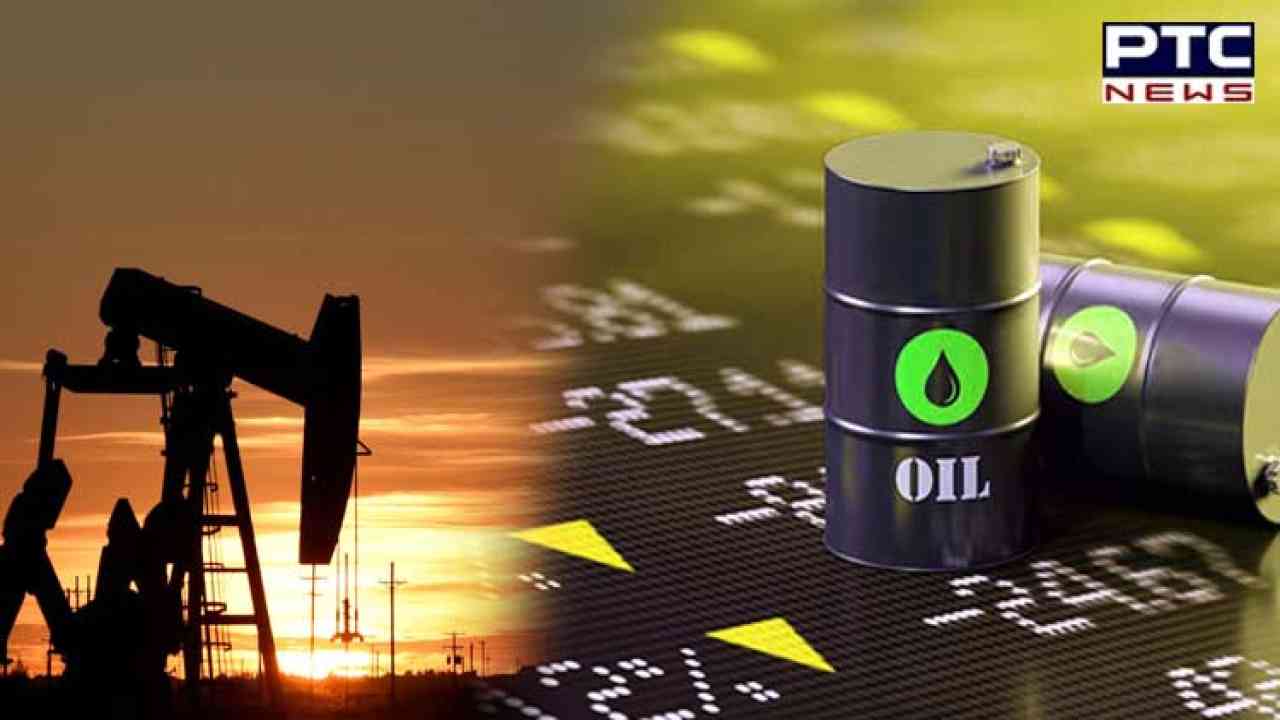Crude Oil Price Update: Crude oil prices jump amid Israel-Hamas conflict, India's energy sector faces challenges
New Delhi, October 9: Global crude oil prices experienced a notable surge on Monday, largely driven by the intensifying Israel-Hamas conflict, which entered its third day marked by significant casualties on both sides. Brent crude, the renowned global benchmark, registered an impressive 5 per cent increase before a minor correction.
At the time of reporting, crude oil prices were trading at USD 87.61 per barrel, marking a 3.52 per cent uptick from the previous week's closing. Simultaneously, WTI crude witnessed a surge of over 3 per cent, reaching USD 85.96 per barrel, after briefly touching USD 87.23.
This remarkable price surge occurs in the backdrop of already elevated oil prices, primarily attributable to supply concerns arising from output cuts implemented by select oil-producing nations.

The Israel-Hamas conflict's impact on the oil and energy sector has garnered attention, prompting comments from Union Petroleum Minister Hardeep Singh Puri. He emphasised India's commitment to addressing the situation with maturity, highlighting the critical role of the conflict zone in global energy dynamics.
The Union Minister underscored the significance of vigilant monitoring and navigating through these uncertainties, asserting that such circumstances encourage the transition to sustainable and cleaner fuel alternatives.
_9b5eb39d1071859cf2d9971a1d450f1a_1280X720.webp)
Ravindra V Rao, VP-Head Commodity Research, noted that oil prices surged more than 4 per cent in early Asian trading due to the escalating conflict's potential to inflame Middle East tensions—an area responsible for roughly one-third of global crude oil supply.
Deepak Jasani, Head of Retail Research at HDFC Securities, observed that market repercussions would largely depend on whether the conflict expands to other Middle Eastern regions. Additionally, oil traders are closely watching Iran, a major oil producer and supporter of Hamas.
Meanwhile, OPEC is expected to release its annual World Oil Outlook, offering updated long-term forecasts for demand and supply.
For India, a substantial importer of crude oil from diverse sources, the mounting pressure on energy prices poses a significant policy challenge. Concerns about rising inflation have also been raised by the Reserve Bank of India (RBI), given uncertainties stemming from factors such as decreased kharif sowing for essential crops, diminished water levels in critical reservoirs, and volatile global food and energy prices. RBI Governor Shaktikanta Das has highlighted the central bank's apprehension, identifying high inflation as a substantial risk to macroeconomic stability and sustainable growth.
Moreover, since the outbreak of the Russia-Ukraine conflict in February 2022, energy prices have consistently risen. India has actively diversified its sources of crude oil imports, including purchases from Russia, while emphasising that these imports align with national interests and the needs of its extensive consumer base.
Minister of Petroleum and Natural Gas Hardeep Singh Puri has recently urged OPEC to recognise the gravity of the current economic situation and promote pragmatism, balance, and affordability in oil markets. Minister Puri held discussions with OPEC Secretary General Haitham Al-Ghais during the Abu Dhabi International Petroleum Exhibition and Conference (ADIPEC) in October 2023, advocating for global energy market equilibrium and ensuring that crude oil prices remain manageable for consuming nations.
Collectively, OPEC and OPEC have reduced oil availability by approximately 5 per cent of global demand since August 2022, contributing to a surge in Brent crude prices from around USD 72 per barrel in June to nearly USD 97 per barrel by September 2023, translating to a 34% price increase in just three months.